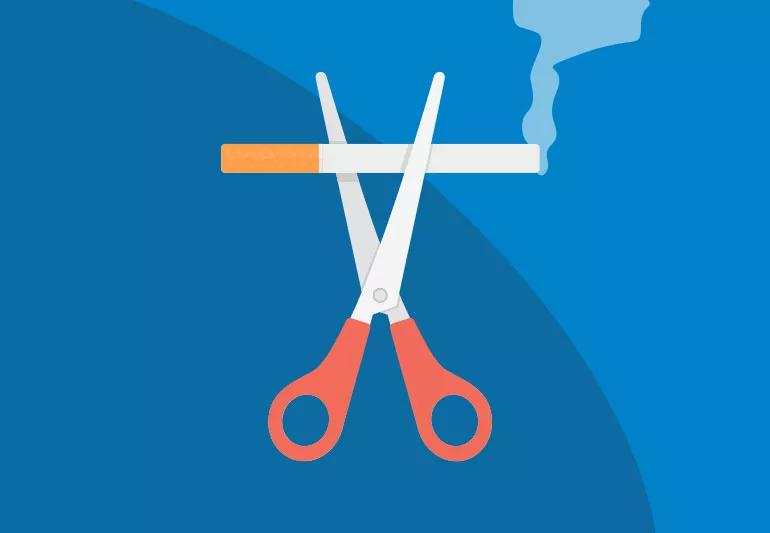Health benefits start within 20 minutes and continue to grow for years after

Image content: This image is available to view online.
View image online (https://assets.clevelandclinic.org/transform/a9ec172e-e1ce-4a62-a28c-80072a2ff3f6/stopSmokingBenefits-1020021076-770x553-1_jpg)
Scissors cutting a lit cigarette.
If you smoke and want to feel healthier and be healthier, there’s a quick and clear way to accomplish that goal: STOP SMOKING. Just snuff out that final cigarette and don’t light up again.
Advertisement
Cleveland Clinic is a non-profit academic medical center. Advertising on our site helps support our mission. We do not endorse non-Cleveland Clinic products or services. Policy
It won’t take long to get results. In fact, within 20 minutes after your last cigarette, your body will start undoing the damage caused by the harmful habit.
But that’s just the beginning of the healing when you stop smoking. The days, weeks and months that follow bring numerous changes for the better within your body, says pulmonologist Humberto Choi, MD.
So, let’s take a closer look with Dr. Choi at what happens when you quit smoking.
First, congratulations! Making the decision to stop smoking is a life-changing and life-extending action. The American Cancer Society estimates that quitting smoking can add as much as 10 years to your life.
But we’re getting a little ahead of ourselves looking that far into the future. These positive changes may start quickly, but they don’t all happen at once, explains Dr. Choi. It takes time.
Here’s a breakdown of the benefits when you quit smoking and when you might see them.
Advertisement
Smoking isn’t just an unhealthy habit. It’s an expensive one.
The average person who smokes lights 14 cigarettes per day. That habit costs $4.40 per day, according to a spending calculator at smokefree.gov. Over time, that adds up to some serious cash.
Advertisement
Using that 14-cigarettes-a-day average, this is what you can expect to save when you stop smoking.
It’s hard to understate the positives that come when you quit smoking. It’s worth doing in so many different ways.
But it does take work and it won’t be easy. “Two to three days in, your withdrawal symptoms will be at their worst,” states Dr. Choi. “Hang in there, though. They should subside entirely in a few weeks.”
For the best chance of success, create a quit plan and build a support system to stay motivated. Consider talking to your healthcare provider about a smoking cessation program. There are online services to quit smoking, too.
“Most people who smoke try three times before successfully quitting,” encourages Dr. Choi. “Don’t give up. Even if you’ve smoked for years, it is never too late to quit.”
Advertisement

Sign up for our Health Essentials emails for expert guidance on nutrition, fitness, sleep, skin care and more.
Learn more about our editorial process.
Advertisement
Vaping exposes you to thousands of chemicals, including many that are known to cause cancer and lung disease
Smoking can make symptoms from cancer treatment worse, and can even make treatments less effective
From dental diseases to cardiovascular problems, the harmful effects of smoking hookah have plenty of downsides for your health
Even only a couple cigarettes a day can lead to potentially deadly lung diseases like COPD and emphysema
Your risk goes down once you quit, but you may still need a lung cancer screening
Cigarettes increase your risk of developing the condition and worsening its effects
Each comes with substantial health risks and should be avoided
Smoking and vaping deplete oxygen-rich blood that you need for endurance and fitness
Prioritize your health by managing stress, strengthening your social connections and getting quality sleep
Bolsters, blankets, pillows and blocks can offer extra support, stability and comfort
Allergies, postnasal drip, asthma or reflux could be to blame for a cough that won’t quit